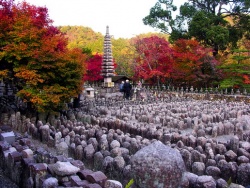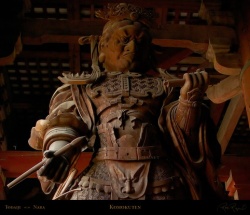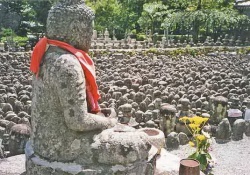Difference between revisions of "The meaning of 108"
(Created page with "thumb|250px| <poem> I always smile when MH, the Barefoot Herbalist, keeps asking others, “What is the meaning of the number 108?” Mysteriously it keeps...") |
|||
| (5 intermediate revisions by 2 users not shown) | |||
| Line 1: | Line 1: | ||
[[File:5sdf.jpg|thumb|250px|]] | [[File:5sdf.jpg|thumb|250px|]] | ||
| − | |||
| − | |||
| − | |||
| − | |||
| − | |||
| − | |||
| − | |||
| − | |||
| − | |||
| − | |||
| − | |||
| − | |||
| − | + | I always [[smile]] when MH, the Barefoot Herbalist, keeps asking others, “What is the meaning of the number [[108]]?” Mysteriously it keeps being revealed to him in various ways in his daily [[life]]. He believes no one will ever know the answer. However, with a little help the meaning can be known. | |
| − | + | In the [[mystical]] [[world]], especially to [[Buddhists]], the number [[108]] is a {{Wiki|metaphor}} for the number of steps required in order to completely “graduate” from this [[earth]] plane. The [[mind’s]] labyrinth is deep and complex. [[To accomplish]] this [[path]], first one must discern the [[8 consciousnesses]] and the 10 [[bhumis]]. Putting them together equals [[108]]. | |
| − | + | The aspirant is required to develop the [[mind]] by sharpening the practice of [[concentration]] ([[shamatha]]) and [[insight]] ([[vipashana]]) [[meditation]]. | |
| − | [[ | ||
| − | |||
| − | + | Along with [[learning]], {{Wiki|reflecting}} and [[meditating]] one is able to progress through all of these stages of practice. This is the {{Wiki|real}} meaning of Ascension. | |
| − | + | According to the [[Hinayana path]], the [[Arhat]] (hearer) and [[Pratyekabuddha]] ([[solitary realizer]]) have four stages of [[enlightenment]]: | |
| − | + | [[File:91120a1a.jpg|thumb|250px|]] | |
| − | + | # [[stream-enterer]] | |
| + | # [[once-returner]] | ||
| + | # [[non-returner]] | ||
| + | # [[fruition]] ([[arhant]]) | ||
| − | + | However, according to the [[Mahayana]] [[path]], the [[Bodhisattva]] ([[enlightening]] being or [[hero]]) ascends through the grounds ([[bhumis]]) to achieve the goal of complete [[enlightenment]] with the [[compassionate]] [[intention]] to reduce the [[suffering]] of all [[sentient beings]]. | |
| − | + | The {{Wiki|structure}} of the [[stupa]] represents the [[enlightened]] [[mind]] of the [[Buddha]]. The one above is exactly [[108]] feet tall. It is an architectural [[representation]] of the entire [[Buddhist path]]. Click the image to learn more about the [[symbolism]] of the [[stupa]]. The [[body]], [[speech]], and [[mind]] of [[enlightenment]] is contained therein. The [[Avatamsaka Sutra]] explains the first part of the number [[108]] in [[relation]] to each of the ten [[bhūmis]]: | |
| − | |||
| − | |||
| − | |||
| − | The | ||
| − | + | ===TEN BHUMIS=== | |
| − | + | [[File:9837c.jpg|thumb|250px|]] | |
| − | |||
| − | |||
| − | + | # The first [[bhumi]] – the Very [[Joyous]]. In which one rejoices at [[realizing]] a partial aspect of the [[truth]] | |
| + | # The second [[bhumi]] – the Stainless. In which one is free from all [[defilement]] | ||
| + | # The third [[bhumi]] – the Luminous. In which one radiates the [[light]] of [[wisdom]] | ||
| + | # The fourth [[bhumi]] – the Radiant. In which the radiant flame of [[wisdom]] burns away [[earthly desires]] | ||
| + | # The fifth [[bhumi]] – the [[Difficult to Cultivate]]. In which one surmounts the [[illusions]] of {{Wiki|darkness}}, or [[ignorance]] as the [[Middle Way]] | ||
| + | # The sixth [[bhumi]] – the [[Manifest]]. In which supreme [[wisdom]] begins to [[manifest]] | ||
| + | # The seventh [[bhumi]] – the Gone Afar. In which one rises above the states of the Two [[vehicles]] | ||
| + | # The eighth [[bhumi]] – the [[Immovable]]. In which one dwells firmly in the [[truth]] of the [[Middle Way]] and cannot be perturbed by anything | ||
| + | # The ninth [[bhumi]] – the Good [[Intelligence]]. In which one preaches the Law freely and without restriction | ||
| + | # The tenth [[bhumi]] – the Cloud of [[Doctrine]]. In which one benefits all [[sentient beings]] with the Law ([[Dharma]]), just as a cloud sends down [[rain]] impartially on all things | ||
| − | + | [[File:AdashinoNembutsuji.jpg|thumb|250px|]] | |
| − | + | The second part of the [[mystical]] number [[108]] explains the following [[eight consciousnesses]] in depth: | |
| − | + | ===[[EIGHT CONSCIOUSNESSES]]=== | |
| − | + | # [[First consciousness]]: “[[Eye]]-[[consciousness]]”; [[seeing]] apprehended by the [[visual]] [[sense]] {{Wiki|organs}} | |
| + | # [[Second consciousness]]: “{{Wiki|Ear}}-[[consciousness]]”; [[hearing]] apprehended by the {{Wiki|auditory}} [[sense]] {{Wiki|organs}} | ||
| + | # [[Third consciousness]]: “{{Wiki|Nose}}-[[consciousness]]”; {{Wiki|smelling}} apprehended through the {{Wiki|olfactory}} {{Wiki|organs}} | ||
| + | # [[Fourth consciousness]]: “{{Wiki|Tongue}}-[[consciousness]]”; {{Wiki|tasting}} [[perceived]] through the {{Wiki|gustatory}} {{Wiki|organs}} | ||
| + | # [[Fifth consciousness]]: “[[Body]]-[[consciousness]]”; {{Wiki|tactile}} [[feeling]] apprehended through {{Wiki|skin}} [[contact]], {{Wiki|touch}} | ||
| + | # [[Sixth consciousness]]: “{{Wiki|Ideation}}-[[consciousness]]”; [[mano]] [[vijnana]], the aspect of [[mind]] known in [[Sanskrit]] as the “[[mind monkey]]”; the [[consciousness]] of [[ideation]] | ||
| + | # [[Seventh consciousness]]: “{{Wiki|Obscuration}}-[[consciousness]]”; [[manas]] [[vijnana]], “{{Wiki|obscuration}}”, “[[poison]]”, “enemy”, “[[ideation]]”, “moving [[mind]]”, “[[monkey mind]]” ([[volition]]); a [[consciousness]] which through apprehension, gathers the [[hindrances]], the [[poisons]], the [[karmic]] [[formations]] | ||
| + | # [[Eighth consciousness]]: “[[store-house consciousness]]”; [[alaya vijnana]], also seed [[consciousness]] ([[bija]] [[vijnana]]); “the [[consciousness]] which is the basis of the other seven”. The seven prior [[consciousnesses]] are based and founded upon the eighth. It is the [[aggregate]] which administers and yields [[rebirth]]; this [[idea]] may in some respects be compared to the usage of the [[word]] “[[citta]]” in the [[agamas]]. In the early texts the [[sankhara]]-[[khandha]] plays some of the roles ascribed to the [[store-house consciousness]] by later [[Yogacara]] thinkers. | ||
| − | + | While practicing serious [[meditation]] and then going through all the [[dhyanas]], [[samapatti]]s, and [[samadhi]]s one slowly purifies all their negative [[karmas]], {{Wiki|afflictive}} [[emotions]], and {{Wiki|cognitive}} [[obscurations]] which enable one to rises through the 10 levels. At the 11th [[Bhumi]] one becomes a super-man, a fully [[realized]] being called a [[Buddha]] – the fully [[Awakened One]]. | |
| − | |||
| − | |||
{{R}} | {{R}} | ||
[http://neozen888.wordpress.com/2011/01/16/the-meaning-of-108/ neozen888.wordpress.com] | [http://neozen888.wordpress.com/2011/01/16/the-meaning-of-108/ neozen888.wordpress.com] | ||
[[Category:108]] | [[Category:108]] | ||
[[Category:Eight Consciousnesses]] | [[Category:Eight Consciousnesses]] | ||
Latest revision as of 06:05, 17 April 2024
I always smile when MH, the Barefoot Herbalist, keeps asking others, “What is the meaning of the number 108?” Mysteriously it keeps being revealed to him in various ways in his daily life. He believes no one will ever know the answer. However, with a little help the meaning can be known.
In the mystical world, especially to Buddhists, the number 108 is a metaphor for the number of steps required in order to completely “graduate” from this earth plane. The mind’s labyrinth is deep and complex. To accomplish this path, first one must discern the 8 consciousnesses and the 10 bhumis. Putting them together equals 108.
The aspirant is required to develop the mind by sharpening the practice of concentration (shamatha) and insight (vipashana) meditation.
Along with learning, reflecting and meditating one is able to progress through all of these stages of practice. This is the real meaning of Ascension.
According to the Hinayana path, the Arhat (hearer) and Pratyekabuddha (solitary realizer) have four stages of enlightenment:
However, according to the Mahayana path, the Bodhisattva (enlightening being or hero) ascends through the grounds (bhumis) to achieve the goal of complete enlightenment with the compassionate intention to reduce the suffering of all sentient beings.
The structure of the stupa represents the enlightened mind of the Buddha. The one above is exactly 108 feet tall. It is an architectural representation of the entire Buddhist path. Click the image to learn more about the symbolism of the stupa. The body, speech, and mind of enlightenment is contained therein. The Avatamsaka Sutra explains the first part of the number 108 in relation to each of the ten bhūmis:
TEN BHUMIS
- The first bhumi – the Very Joyous. In which one rejoices at realizing a partial aspect of the truth
- The second bhumi – the Stainless. In which one is free from all defilement
- The third bhumi – the Luminous. In which one radiates the light of wisdom
- The fourth bhumi – the Radiant. In which the radiant flame of wisdom burns away earthly desires
- The fifth bhumi – the Difficult to Cultivate. In which one surmounts the illusions of darkness, or ignorance as the Middle Way
- The sixth bhumi – the Manifest. In which supreme wisdom begins to manifest
- The seventh bhumi – the Gone Afar. In which one rises above the states of the Two vehicles
- The eighth bhumi – the Immovable. In which one dwells firmly in the truth of the Middle Way and cannot be perturbed by anything
- The ninth bhumi – the Good Intelligence. In which one preaches the Law freely and without restriction
- The tenth bhumi – the Cloud of Doctrine. In which one benefits all sentient beings with the Law (Dharma), just as a cloud sends down rain impartially on all things
The second part of the mystical number 108 explains the following eight consciousnesses in depth:
EIGHT CONSCIOUSNESSES
- First consciousness: “Eye-consciousness”; seeing apprehended by the visual sense organs
- Second consciousness: “Ear-consciousness”; hearing apprehended by the auditory sense organs
- Third consciousness: “Nose-consciousness”; smelling apprehended through the olfactory organs
- Fourth consciousness: “Tongue-consciousness”; tasting perceived through the gustatory organs
- Fifth consciousness: “Body-consciousness”; tactile feeling apprehended through skin contact, touch
- Sixth consciousness: “Ideation-consciousness”; mano vijnana, the aspect of mind known in Sanskrit as the “mind monkey”; the consciousness of ideation
- Seventh consciousness: “Obscuration-consciousness”; manas vijnana, “obscuration”, “poison”, “enemy”, “ideation”, “moving mind”, “monkey mind” (volition); a consciousness which through apprehension, gathers the hindrances, the poisons, the karmic formations
- Eighth consciousness: “store-house consciousness”; alaya vijnana, also seed consciousness (bija vijnana); “the consciousness which is the basis of the other seven”. The seven prior consciousnesses are based and founded upon the eighth. It is the aggregate which administers and yields rebirth; this idea may in some respects be compared to the usage of the word “citta” in the agamas. In the early texts the sankhara-khandha plays some of the roles ascribed to the store-house consciousness by later Yogacara thinkers.
While practicing serious meditation and then going through all the dhyanas, samapattis, and samadhis one slowly purifies all their negative karmas, afflictive emotions, and cognitive obscurations which enable one to rises through the 10 levels. At the 11th Bhumi one becomes a super-man, a fully realized being called a Buddha – the fully Awakened One.



